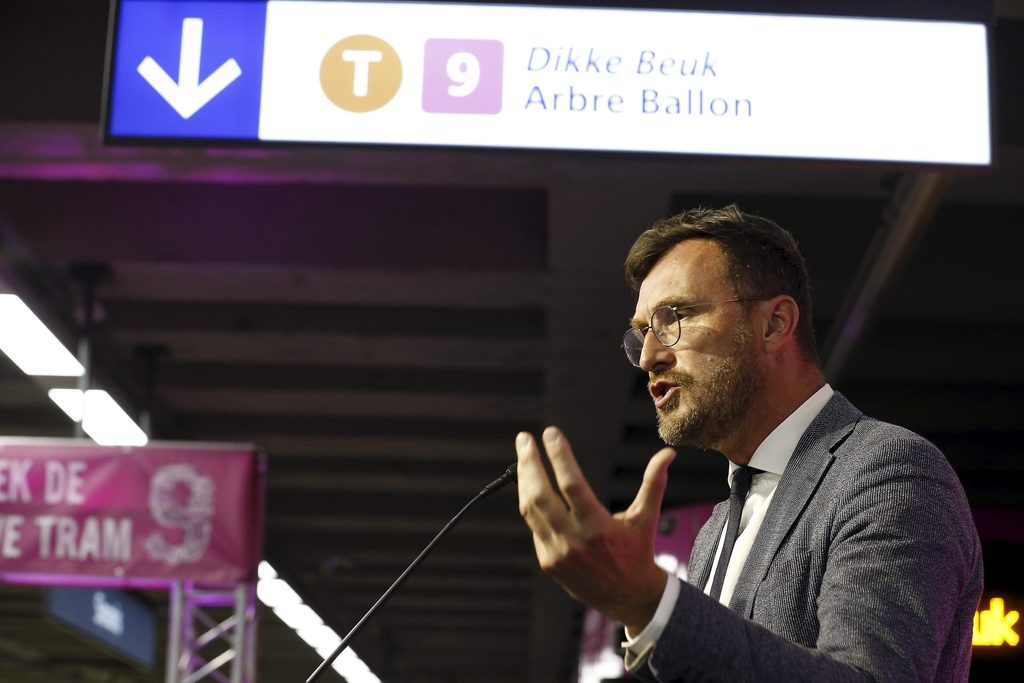Three months after his resignation, former Brussels State Secretary for Urbanism Pascal Smet is looking ahead to the future of the Belgian capital.
For the first time in years, Smet is starting Brussels' new parliamentary term as a regular MP instead of a minister or a state secretary. But next year, the Capital Region is celebrating its 35th birthday – a perfect occasion to make some changes, said Smet.
"There are lots of ways of serving Brussels. I like to do things that have an impact. Why not stand for President of the Parliament? It would be nice to have a Dutch-speaking one for the first time. The ambition is there," he told Sudinfo.
Critics have been saying that the Dutch-speaking community has been over-represented in the Brussels Parliament for years, but Smet does not think that should be an issue. "It all depends on the result of the elections, but it would be a nice gesture for Brussels' 35th anniversary to say that the Minister-President is French-speaking and the President of Parliament is Dutch-speaking. Why not?"
In general, Smet believes that there is no need for separate French-speaking and Dutch-speaking lists during the elections. "I think we should just have bilingual lists. But still, we do need Dutch-speaking representation. Very often, Dutch speakers are the driving force behind changes in Brussels, we are the catalysts."

Smet delivers a speech at the royal opening of the new tram line number 9 in Brussels, Saturday 01 September 2018. Credit: Belga / Nicolas Maeterlinck
For 20 years, Smet has been involved in reforming and changing Brussels in various functions, ranging from mobility and public works to heritage and European relations. "I want to continue. You do not have to be in politics just to look good. You cannot only communicate, you have to act."
His urge to do just that, as well as his involvement in pedestrianising large parts of the city centre, has also led to him being dubbed the "divisive architect of Brussels" by critics, but Smet disagrees with that nickname.
"I am not divisive. When I arrived in Brussels, the city was dedicated to the car. People shouted at me to take my bike back to Flanders. I implemented a whole policy to make the city more pleasant," he said. "Obviously, this goes against some people's ideas and there is a lot of debate, but that is what politics is all about – you need opinions to change society."
A go-getter
Smet said he has always done his best to carry out his visions and dared to take responsibility. "Sometimes I have been clumsy, but I have been clear in my communication. I am a go-getter, a man of action. I was an easy target because I speak frankly and I take responsibility."
The former state secretary has been at the centre of various political storms in Brussels politics. In 2022, he was accused, in the leaked Uber Files, of lobbying on behalf of American shared mobility company in Brussels, which he denies. Three months ago, he was forced to resign from the Brussels Government following the controversy around the invitation of both an Iranian government delegation and pro-war Russian officials to this year's Brussels Urban Summit.
"I think everyone understood that it was the Federal Government that took the decision and was responsible; it was an unnecessary conflict," Smet explained. "On a personal level, I deeply regret the way [Foreign Minister] Hadja Lahbib acted. I made an honest decision when I left my job, and she made hers."
In the meantime, however, he moved on. "Nobody really wanted me to resign. I felt it was the right thing to do. I would have liked to have finished my files, but that's life, you have to move on."

